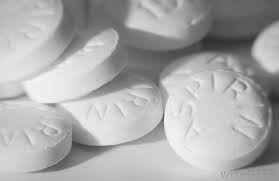Supermarket shelves are packed with different painkilling products, but do they all do the same thing? There are some simple ways consumers can check they are getting the right treatment and the best deal, Neal Patel says.
Nurofen, for example, contains 200 milligrams of ibuprofen per tablet.
But supermarkets and chemists also sell cheaper own-brand packets of tablets that contain 200 milligrams of ibuprofen.
And both will do the exactly the same job.
Some formulations – ibuprofen lysine, for example – may be quick-release to provide more rapid relief.
And different painkillers – paracetamol, ibuprofen and aspirin, for example – can work better for different types of pain.
Paracetamol is good for headaches and toothache.
It can also help bring down a temperature, so is handy for conditions such as flu.
Ibuprofen works particularly well when the pain is accompanied by inflammation – arthritis, for example – because it is good at bringing down swelling.
Aspirin has a similar anti-inflammatory effect to ibuprofen, but it can have side-effects in some people and should not be given to children under 16 for safety reasons.
The best advice is to start low. Mr Patel says: “Make sure you take the least potent drug and the smallest dose that will control your pain.”
Some painkillers are combined with an opiate drug called codeine – for example, co-codamol is paracetamol plus codeine.
These combinations are slightly stronger than paracetamol or ibuprofen alone.
Codeine can be addictive, so it should not be taken for more than a few days.
If you are unsure what is the best treatment to take, chat with your chemist.
Before you buy, it is worth considering whether you actually need tablets.
Some painful conditions can be treated without medication.
For example, if you have muscle pain from exercise, you could try rest, ice, compression and elevation instead.
If you are already taking other medications, make sure any treatment you buy will not clash with what you are already on.
Remember, cold and flu remedies contain painkillers, so you need to take care about doubling up on drugs.
And read the small print about side-effects and contraindications.
All medicines can cause side-effects, and some people are particularly susceptible and should avoid certain tablets.
Speak to your chemist or doctor if you are unsure.
Source: BBC
N.H.Khider

